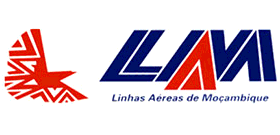 Mozambique’s Aviation Shake-Up: Transparency Crucial for Growth
Mozambique’s Aviation Shake-Up: Transparency Crucial for Growth
A recent corruption scandal involving Mozambique’s national airline, LAM, has sent ripples through the African aviation industry, highlighting the critical need for transparency and accountability in aircraft procurement. The decision by President Daniel Chapo to cancel a major tender for new aircraft has brought the issue of corruption to the forefront, raising concerns about the future of air connectivity in the region.
The canceled tender, which involved the acquisition of three used Embraer E190s and four Boeing 737-700s, was estimated to be worth a substantial \$140.5 million USD. The decision to halt the process came after allegations of corruption within LAM’s management. President Chapo accused certain officials of sabotaging the procurement process to maintain the airline’s reliance on leased aircraft, from which they allegedly received personal commissions. This revelation has cast a shadow over the airline and raised questions about the integrity of past procurement practices.
The implications of this scandal extend beyond Mozambique’s borders. For African travel agents, the disruption at LAM underscores the importance of partnering with reliable and transparent airlines. The incident serves as a reminder that corruption can significantly impact air connectivity, potentially leading to route cancellations, flight delays, and increased fares. Travel professionals must remain vigilant and prioritize partnerships with airlines that demonstrate a commitment to ethical practices and operational stability.
The corruption scandal also highlights the broader challenges facing the aviation sector in Mozambique. LAM, with its limited fleet and recent route suspensions, has been struggling to maintain operational efficiency. The airline currently operates a single De Havilland Canada DHC-8-Q400, two Embraer 145s operated by its subsidiary, and a few leased aircraft. The canceled tender was intended to address the airline’s fleet shortage and expand its route network. The delay in acquiring new aircraft will likely exacerbate LAM’s operational challenges and hinder its ability to compete effectively in the regional market.
President Chapo’s decisive action in canceling the tender signals a commitment to tackling corruption and reforming the aviation sector. His promise to reorganize LAM with greater transparency and responsibility is a positive step towards restoring confidence in the airline. However, the long-term success of these reforms will depend on the implementation of robust anti-corruption measures and a commitment to ethical procurement practices.
The fallout from this scandal is likely to influence future aircraft procurement processes in Africa. Governments and airlines across the continent will be under increased scrutiny to ensure transparency and accountability in their dealings. The incident may also encourage greater due diligence in the selection of bidders and the evaluation of proposals. The shortlisted companies for the LAM tender included a mix of global and regional players, such as Embraer, AVICO, Hi Fly, China Aircraft Leasing (CALC), Lion Aviation, and K5 Aviation Botswana. The scrutiny surrounding this tender will likely prompt these companies, and others like them, to reinforce their commitment to ethical business practices.
For African travel professionals, navigating this evolving landscape requires staying informed about industry developments and advocating for greater transparency. By prioritizing partnerships with reputable airlines and supporting initiatives that promote ethical conduct, travel agents can contribute to a more stable and sustainable aviation sector in Africa. The LAM scandal serves as a wake-up call, reminding us that integrity and accountability are essential for the long-term health of the industry.
The financial implications of aircraft acquisition decisions are also crucial for African airlines. While leasing can offer short-term flexibility, purchasing aircraft typically provides long-term cost savings. Analysis shows that purchasing an Embraer E190 could save an airline nearly \$30 million over ten years compared to leasing, while purchasing a Boeing 737-700 could save over \$35 million. These savings are significant and could be reinvested in improving services and expanding routes. However, the upfront costs of purchasing aircraft can be prohibitive for some airlines, making leasing a more viable option in the short term. The key takeaway for African travel professionals is to understand the financial considerations that influence airline decisions and how these decisions ultimately impact air connectivity and ticket prices.
